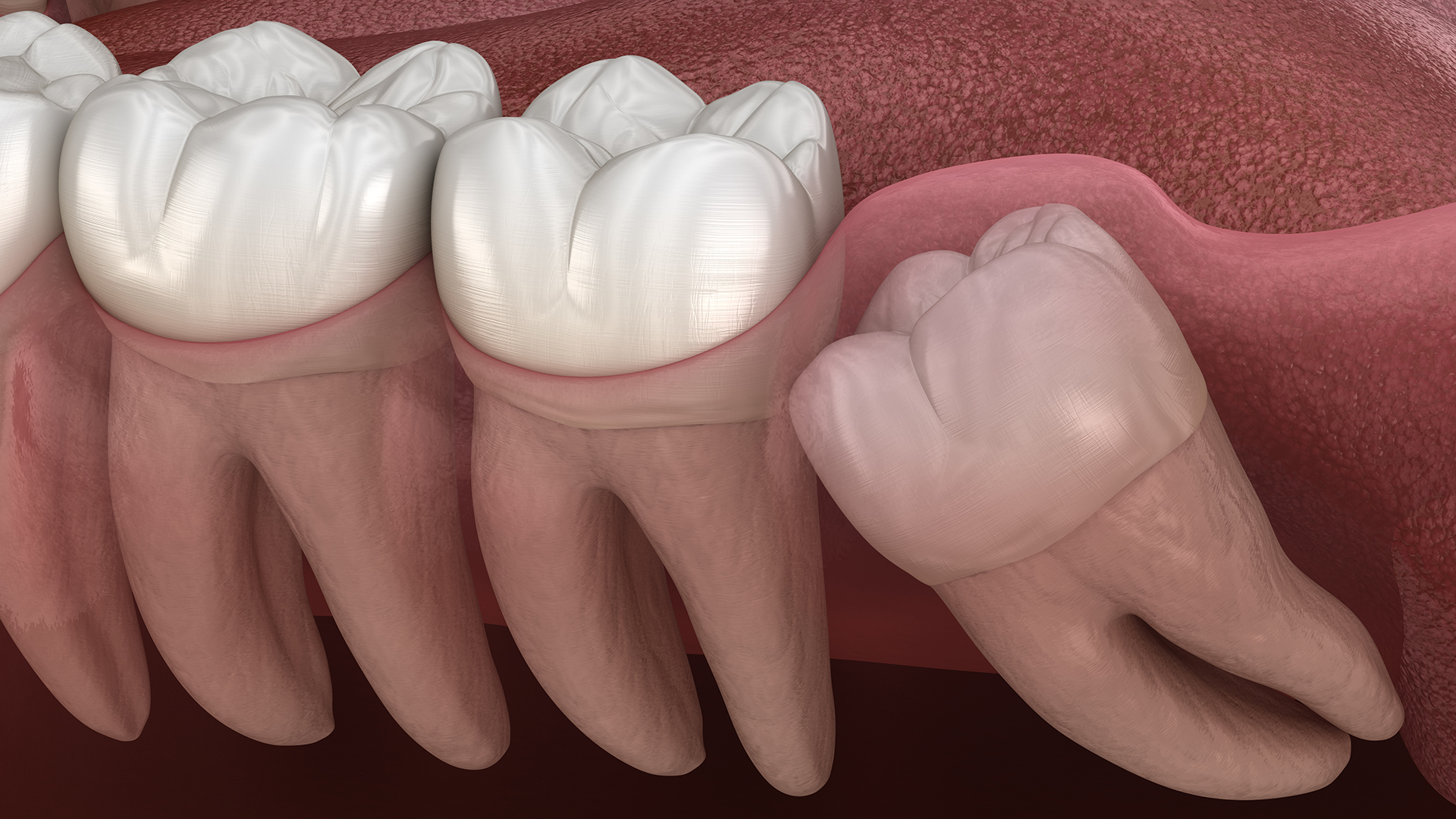Can wisdom teeth grow back?
We know they can be a pain, but can wisdom teeth grow back?

Wisdom tooth removal is a common procedure, but can wisdom teeth grow back? Wisdom teeth are surrounded by myths and misconceptions. Our wisdom teeth are so-called because they emerge later than our other adult teeth during the late teens and early twenties.
Wisdom teeth are also known as the ‘third molars’, as they appear behind the other two molars. There are usually four in total, but it is entirely possible to have none at all, between one and three, and even more than four. According to the Dental Research Journal, between 5 and 37% of people have less than four wisdom teeth.
• Read more: Oral B vs Sonicare toothbrushes
Whether we have wisdom teeth or not, maintaining good hygiene is an important part of oral health. The American Dental Association recommends brushing your teeth for two minutes twice a day. If you fancy picking up a great electric toothbrush at a good price, check out our guide to the best electric toothbrushes.
In this article, we'll look at the science behind wisdom teeth and we’ll take a detour into history to understand why we have them in the first place.
Can wisdom teeth grow back?
When a wisdom tooth comes through, it will push up from under the surface of the gum. If you’re lucky, it will emerge in line behind your other two molars. In this scenario, your dentist would likely monitor your teeth, though they would not ordinarily require removal.
However, many people find that their jaws are too small, leading to insufficient room for these additional teeth. When wisdom teeth come through, the lack of space can cause them to push up at an angle, get stuck or not fully emerge above the surface of the gum. These teeth are known as impacted. You may even have impacted wisdom teeth that you cannot see, as they are beneath the surface of a gum. In this case, they can be picked up by a dental X-ray.
It is these impacted teeth that are more prone to tooth decay and infections. They can be difficult to thoroughly clean as they are crowded together or haven’t fully emerged, leading to a higher risk of dental complications. There is an ongoing debate about whether impacted teeth should be removed on a routine basis even in cases where there are no complications. A 2020 systematic review published in the Cochrane Library found there was limited evidence on which to make treatment decisions about the removal of asymptomatic teeth. It concluded that dentists should take into account their clinical expertise and patient choice.
Having an extraction procedure is still relatively common, but can wisdom teeth grow back? If you’ve had your wisdom teeth removed, you may be pleased to find out they do not come back. The misconception that wisdom teeth can grow back is likely due to some people having more than four so it may appear that teeth that had previously been removed are re-emerging.
Why do wisdom teeth hurt?
Many of us will associate pain with wisdom teeth, but what is the science behind this? These teeth emerge at the back of the mouth, one on each side on both the top and bottom jaw. A telltale sign of wisdom teeth coming through is if you feel discomfort towards the back of your mouth and you are in the typical age group, so someone in their late teens or early twenties. Other signs may include redness or swelling of the gums. It's normal to experience some discomfort as the teeth push up through the gum and this is not a cause for concern.

Dr Safa Al-Naher, Director and Principal Dentist at Serene Dental and Facial Aesthetics told Live Science that, "most wisdom tooth pain occurs because the gum surrounding it becomes infected from reduced cleaning because the tooth is so far back or not fully emerged. Contrary to popular belief, it is not usually due to the teeth erupting."
As wisdom teeth are often crowded, food can easily become trapped which can lead to dental complications. Whether you use an electric toothbrush or a manual toothbrush, maintaining oral hygiene is particularly important for wisdom teeth
When it comes to pain relief, Dr Al-Naher had the following advice: "Wisdom tooth pain is most commonly due to an infected and inflamed gum. The best advice is to try to clean the area as much as possible using a saltwater or antibacterial mouthwash, and to see a dentist if the pain persists or happens too often." Non-steroidal anti-inflammatory drugs (NSAIDs) such as Ibuprofen can also be safely used to relieve pain associated with wisdom teeth.
Why do we have wisdom teeth?
You may be wondering why we have wisdom teeth in the first place if they can cause problems. After having four wisdom teeth removed herself, the anthropologist Professor von Cramon-Tabaudel became curious about why so many people suffer from tooth overcrowding. She led a study that was published in the Proceedings of the National Academy of Sciences of the United States of America in 2011 and found that our ancestors had larger jaws than we typically do today.
Her research concluded that the human jaw shape is likely to have evolved over time because of changes to our diets. In hunter-gatherer cultures, food was typically more gritty and fibrous, which required more chewing. Greater force was needed, which meant the lower jaw increased in size and protruded further. Therefore our ancestors had more space for those wisdom teeth.
With the rise of agriculture, our diet shifted to more grains and processed foods, which are typically softer and require less force to chew. This means that we now typically have smaller jawbones and less space for emerging wisdom teeth. This results in overcrowding, which in turn has an increased risk of problems such as tooth decay and infections.
Sign up for the Live Science daily newsletter now
Get the world’s most fascinating discoveries delivered straight to your inbox.
Louise Bond is a UK-based writer specializing in health and wellbeing. She has over eight years of experience in management within health and care and brings this passion and expertise to her writing. Louise has been published in The Guardian, Planet Mindful and Psychreg among others. She is at her happiest when she is out in nature, whether that’s on an invigorating hike or pottering in the garden.











